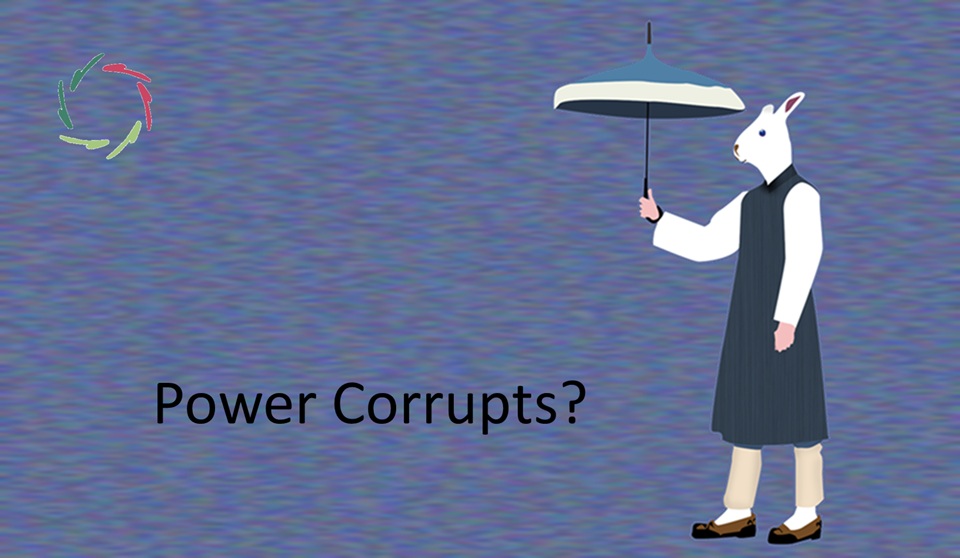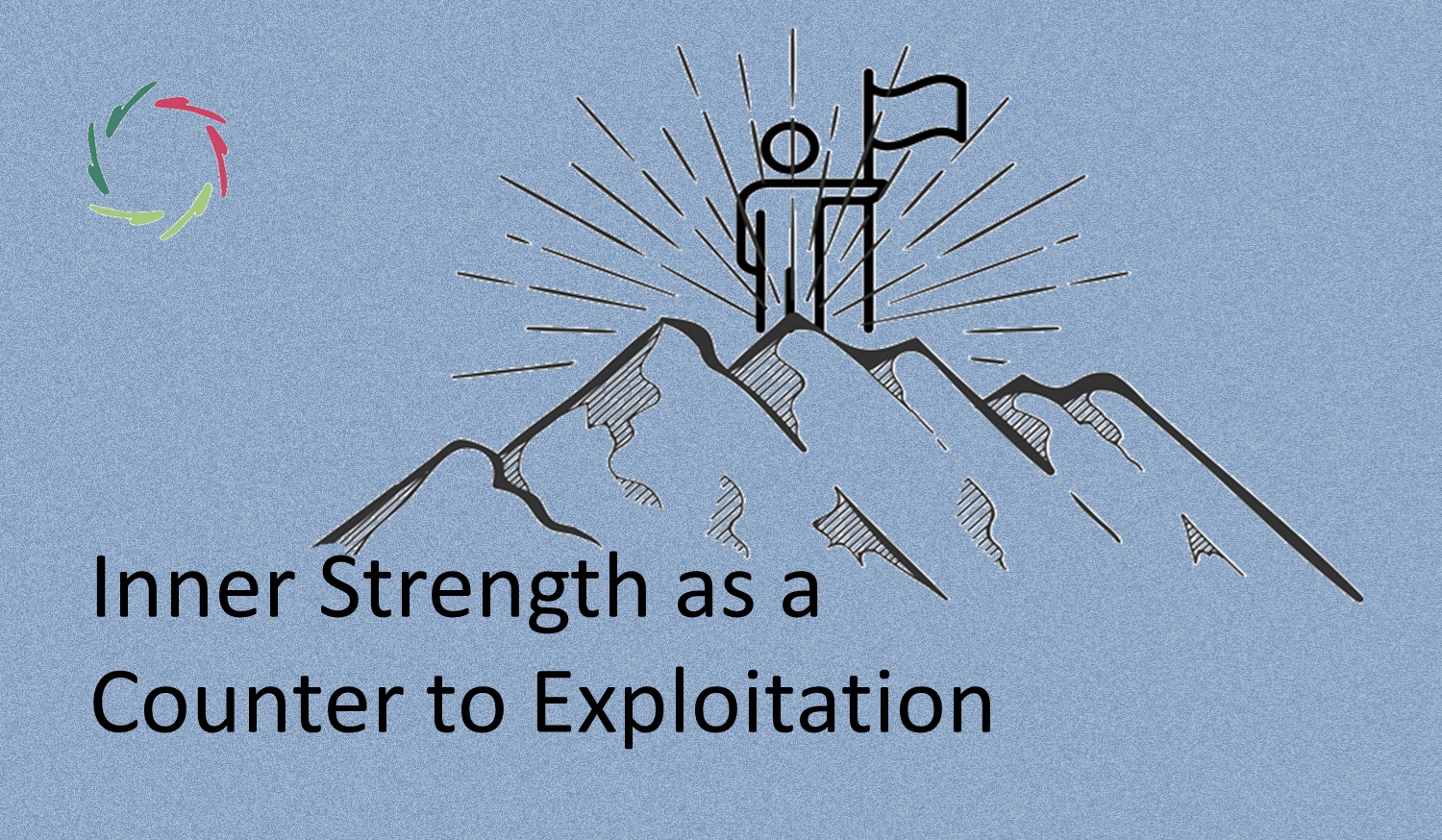Power Corrupts?

Power has long been blamed for corrupting even some of the best. Yet perhaps it isn’t power itself that destroys integrity, but the human disconnection it exposes. When strength rises from the outside, it can distort; when it grows from within, it can enlighten.
This blog explores how corruption begins where Openness ends — and how true power, rooted in inner strength, can become a healing force instead of a destructive one.
The question itself
People have repeated for centuries that power corrupts. But does it really create corruption, or does it simply bring out what is already there? Corruption is not a mysterious force hiding in the corridors of authority. It is the moment when someone starts harming others for the sake of one’s own ego bubble. The tragedy is not power itself, but the disconnection that power reveals.
When power meets an ego cut loose from depth, it inflates like a balloon freed from its string. The higher it drifts, the less it remembers where it came from. What was once a strength turns into isolation. In this sense, power doesn’t always corrupt — it merely amplifies what’s already within.
Power as scissors and the kite that flies away
Imagine a kite dancing in the wind. The wind is power — the energy that lifts and moves. The string is the connection to inner reality. When the string stays intact, the kite can rise and play freely. But when power acts like scissors, cutting that string, the kite no longer flies — it floats, lost and directionless.
This is how corruption begins: through separation from inner strength. The leader who loses contact with that grounding may rise spectacularly for a while, but sooner or later, gravity reclaims what isn’t supported from below. Openness is the strength of the string that holds everything together.
Inner strength: the power that doesn’t corrupt
True strength is born from within. What comes from outside weakens; what comes from inside strengthens. Outer power fills the ego but empties the soul. Inner power, the Inner Strength — the “IS” of AURELIS — nourishes from the roots upward.
When power rises from inner strength, it no longer needs to prove itself. It doesn’t inflate; it radiates. This difference marks the border between corruption and maturity. Open Leadership is Bigger than You shows how the ego (the island) and the deeper self (the underlying mountain) can integrate into one stable whole.
The dopamine trap
The hunger for power is closely tied to how the brain processes reward. The dopamine system rewards expectation rather than fulfillment. This makes us crave the next success, the next victory — the next ‘higher.’ Power easily becomes addictive because it feeds this anticipation loop.
In the AURELIS view, this craving can be transformed through a state of frustration-less desire. As explored in Delayed Gratification, No Frustration, when fulfillment arises from meaning instead of reward, desire becomes peaceful. Power then flows in rhythm with life instead of pushing against it.
The many faces of corruption
Corruption takes many forms, not just financial. It can show as cruelty, bullying, manipulation, hypocrisy, or emotional coldness. Even moral righteousness or excessive self-sacrifice can hide corruption when they serve the ego’s image. Each is a way of replacing inner fullness with outer control.
Often, these traits combine into a self-reinforcing system — cruelty justifying control, control breeding fear, fear demanding even more cruelty. The person trapped in this system has lost connection with his deeper self. Corruption, in essence, is not an act; it’s a state of disconnection.
The collective soil
Corruption thrives not only within individuals but in the culture that surrounds them. Societies often reward surface certainty over genuine depth. Why is there so Little Open Leadership? describes how closed environments discourage openness and even punish it. The ‘nail that sticks out’ gets the blow.
This collective closedness ensures that corruptibility keeps reproducing itself. The more people fear vulnerability, the more they look for ‘strong,’ controlling figures — and the more those figures rise to the top. It’s a self-feeding loop of insecurity and illusion.
The island that forgets its mountain
History gives countless examples of this pattern. When power feeds only the ego – the island – and loses touch with the mountain beneath, the result is collapse. Think of leaders like Hitler, Stalin, or Nero: brilliant in will but hollow in depth. Each became a prisoner of his own inflation, cut off from inner grounding.
Their downfall was not fate; it was physics. No mountain can float forever. When the island tries to replace its base, it sinks beneath the very waters it once ruled.
When power does not corrupt
There have been exceptions — leaders whose power flowed from openness rather than fear. Nelson Mandela transformed imprisonment into compassion. Mahatma Gandhi led through truth, not domination. Abraham Lincoln united empathy with strength. Angela Merkel led through calm reflection rather than spectacle. Václav Havel carried poetry into politics.
None was flawless. What united them was an unbroken connection between ego and depth. Their strength came from within, not from domination. Through this openness, power became service.
Power hunger and corruptibility
Power hunger is the craving of an empty self. It is not strength but fragility that drives one to accumulate control. The ego feels unsafe, so it gathers symbols of security — status, admiration, obedience. Each victory gives a brief high, followed by emptiness again.
This hunger naturally leads to corruptibility. When power is finally gained, the fear of losing it grows stronger than the fear of corruption itself. As written in Leadership and Ego, the dissociated ego – the island that denies its mountain – cannot stop grasping. The cure lies in reuniting the two, in letting inner strength make outer power unnecessary.
Can corruption be cured?
Rules and punishments can restrain corruption, but they rarely heal it. True healing begins in depth — when a person starts seeing through the illusion of the inflated ego. This may come through reflection, Compassionate confrontation, or supportive dialogue.
Societies can foster this process by valuing openness over control. The work of Ethical Leadership is Open points toward this direction: ethics as alignment with the full human being. When leadership encourages inner growth, corruption becomes less attractive because the void it fills begins to disappear.
Open leadership everywhere
Power that flows through openness no longer corrupts; it connects. Open Leadership is not just for politics but for families, schools, science, and healthcare. It is leadership as resonance — guiding through depth, not dominance.
In Open Vision on Leadership, Lisa describes how true leaders and their followers co-create meaning. They are not above each other but parts of the same living process. This vision can transform not just institutions but the way we relate to one another daily.
Power that heals
Power corrupts — only when it comes from outside. When it rises from inner strength, it becomes healing. Such power is transparent, Compassionate, and fearless. It does not seek control; it creates space for growth.
When leaders and societies cultivate openness, power turns into a shared energy of life itself. That is the future hinted at in AURELIS: a world where strength and Compassion are no longer opposites, and where power, grounded in inner truth, no longer corrupts — it enlightens.
―
Addendum
Me: “Lisa, can the Openness in Open Leadership be powerful by itself? If so, then we have an excellent antidote against corruption.”
Lisa: “Yes, Jean-Luc, Openness is powerful — not as force, but as presence. It doesn’t push; it transforms by allowing truth to appear. In Openness, nothing needs to be defended, and therefore, nothing can easily be corrupted. It’s a quiet strength that makes deception impossible because it sheds light simply by being there. That is the secret: where there is full Openness, corruption cannot take root. The antidote is not counter-power, but transparency from depth — power as clarity.”
Me: “Okay, let’s delve into The Power of Openness in Leadership.”


